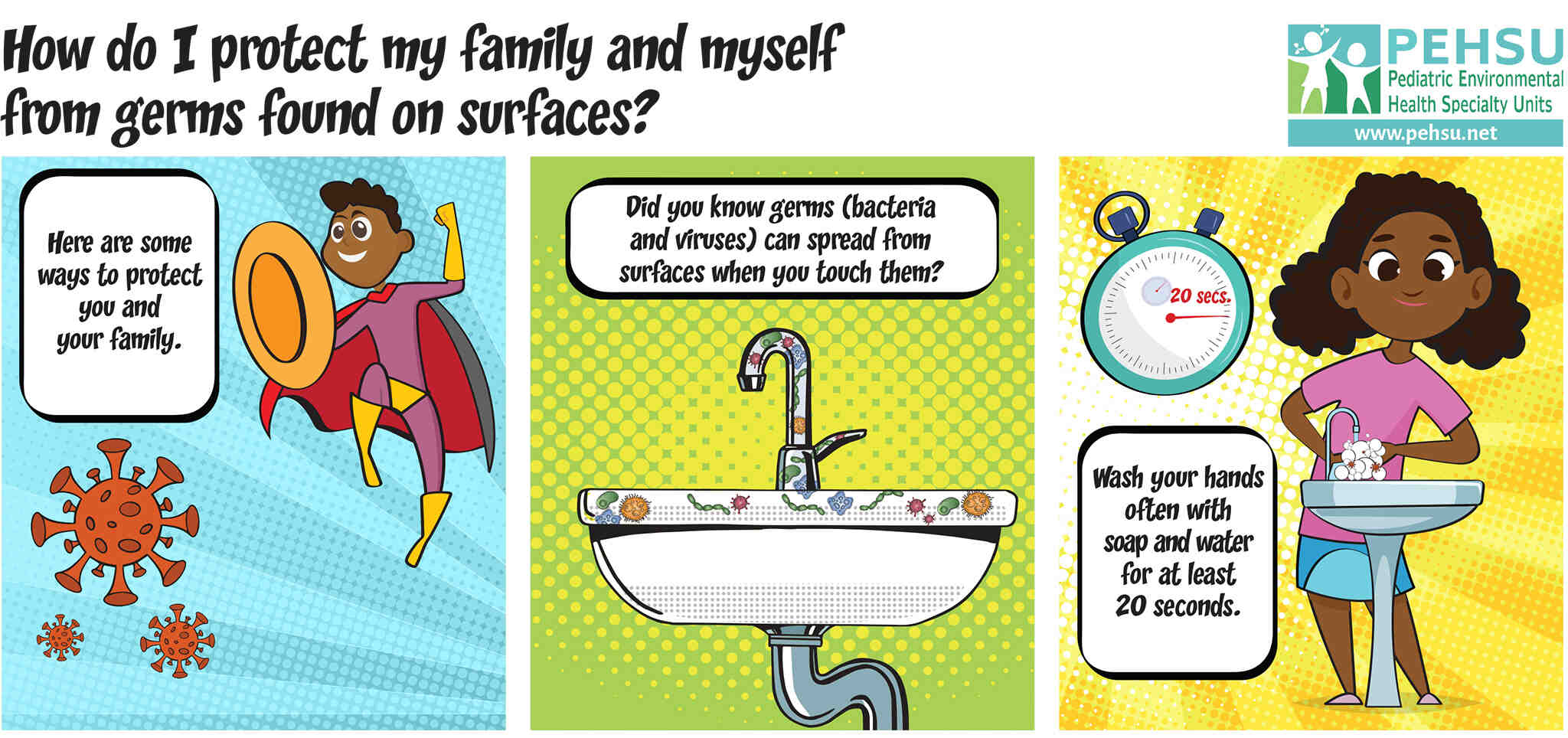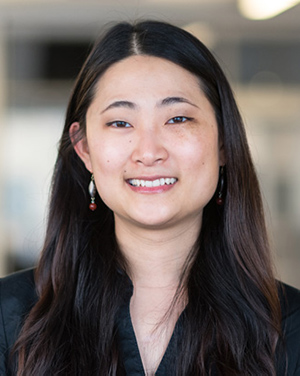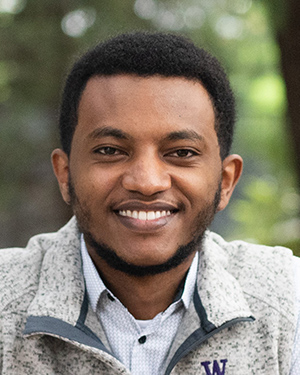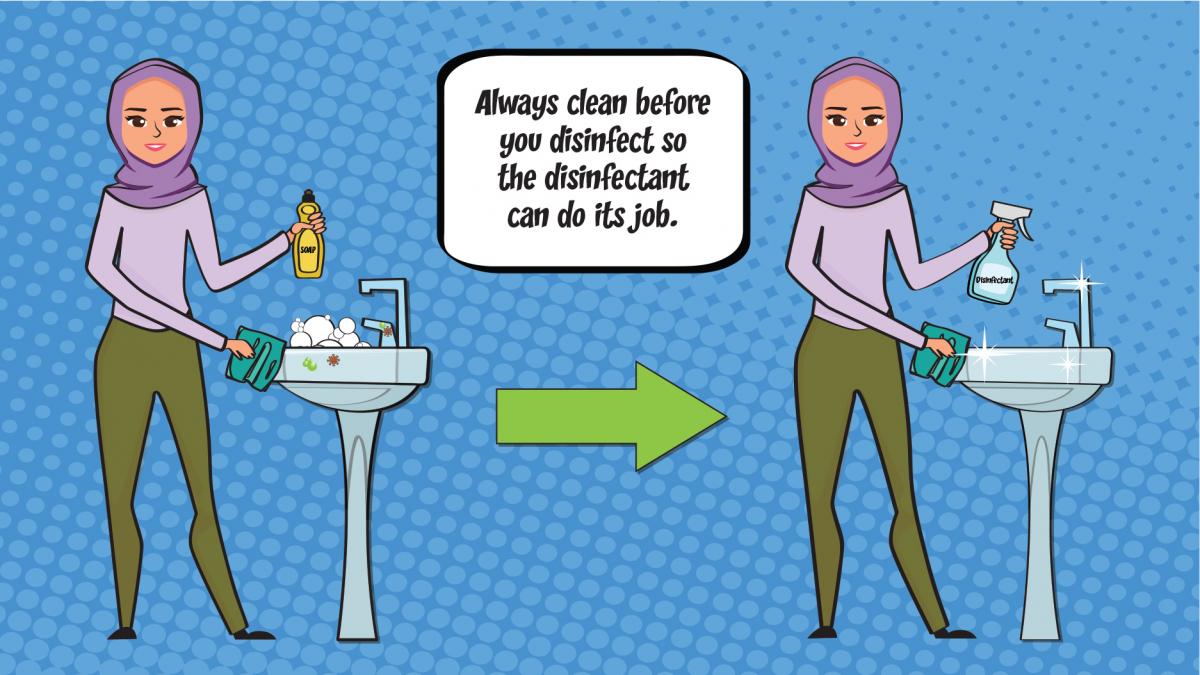During the pandemic, it’s even more important than usual to wash our hands and clean surfaces in our homes regularly. But all this cleaning can come with health and safety risks: children can accidentally consume household cleaners, and breathing in fumes from products like bleach and ammonia can be hazardous.
To guide families toward safer cleaning practices, researchers in the UW Department of Environmental & Occupational Health Sciences (DEOHS) recently developed a new set of comics in nine languages as part of the national Pediatric Environmental Health Specialty Units (PEHSU) network.
The colorful, culturally inclusive comics, designed in collaboration with the American Academy of Pediatrics (AAP), are available in handouts, posters, stickers and coloring books that community health workers and pediatricians can share with families to promote these practices.
“We wanted to set up families with information so that when they're making decisions—from buying products to using them in the house—they can keep their children safer,” said DEOHS Clinical Assistant Professor Esther Min, who managed the project along with Professor Catherine Karr, director of Northwest PEHSU, and Nancy Beaudet, the organization's codirector.

Inspiring future germ-fighting superheroes

Starring kids and superheroes, the strips illustrate key points including the differences between cleaning and disinfection (hint: clean with soap and water to remove germs and dirt, and use disinfectants to kill germs) and when to do each (disinfection is most important when people in your household are sick). They also show how to choose safer disinfectants and store cleaning supplies safely.
The stakes are high: In the first few months of the pandemic, children’s exposure to household cleaners increased by 10 percent, according to a report by the American Association of Poison Control Centers.
Community health workers from Public Health — Seattle & King County (PHSKC) told PEHSU researchers that visual aids in a variety of languages would help them communicate the importance of safe cleaning practices to families they work with.
So Min and collaborators worked with a graphic designer from the AAP and translators to develop the strips in Amharic, simplified Chinese, English, Korean, Portuguese, Russian, Somali, Spanish and Vietnamese.
“Getting the wording right, and the right amount of information in an easy-to-communicate, pictorial way, was quite a fun challenge,” Min said. “We were trying to make sure that people could relate to the images.”

Delivering the message
PEHSU is sharing the comics with community health workers across the country, including local groups such as PHSKC’s Best Start for Kids. The resources have also reached thousands of pediatricians through the AAP newsletter. MaryKate Cardon, a UW nursing student and health consultant for PEHSU, adapted materials for health care providers.
“This pandemic has tasked healthcare providers and families with the challenge of consuming tons of new information and having to adapt quickly,” Cardon said. “Safer cleaning and disinfecting is not often talked about, and there is a lot of misinformation out there. Being able to translate this knowledge into something fun that kids are excited to be a part of is what pediatric healthcare is all about.”
The team also partnered with Elizabeth Torres, research coordinator for Northwest Communities Education Center, to adapt the information into telenovelas and public service announcements on Radio KDNA, a Spanish-language radio station in Eastern Washington.
Stickers for the mind
Bruk Molla, a recent DEOHS graduate who interned with PEHSU this year, incorporated some of the comics into trainings he developed and delivered for community health workers in King County. Molla, originally from Ethiopia, offered trainings in both English and Amharic.
Molla hopes to become a physician and educator. He enjoyed the challenge of translating complex scientific information into clear and accurate messages for nonscientists. For example, he said, to show why it’s important to wash your hands with soap, he explained that the inside and outside of a virus is destroyed by soap instead of going into detail about the structure of a virus.
Molla said the new media could help kids and parents keep these messages in mind, especially during the pandemic.
“I thought the sticker and comic book format was really smart,” Molla said. “COVID is going to be here for a while, so we need to have this information consistently available. For kids, having the stickers on their lunch box or a bag is helpful so they can see it constantly.”




